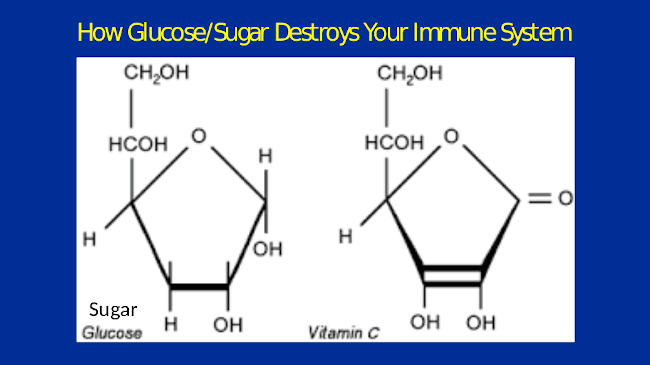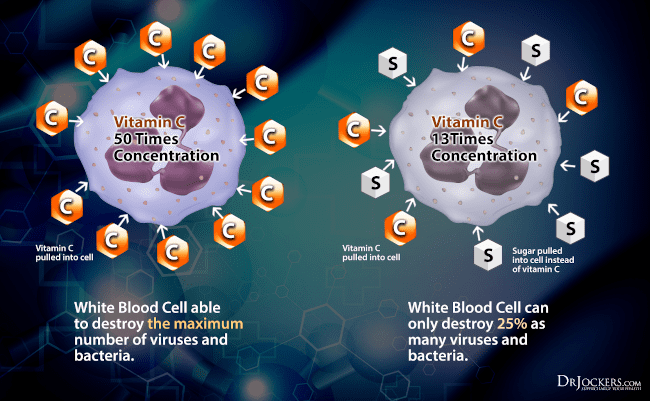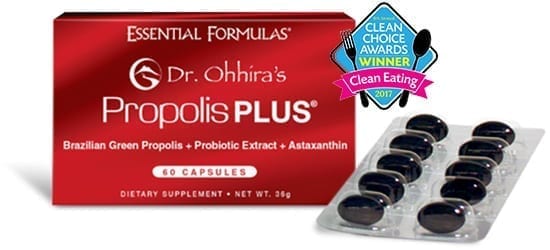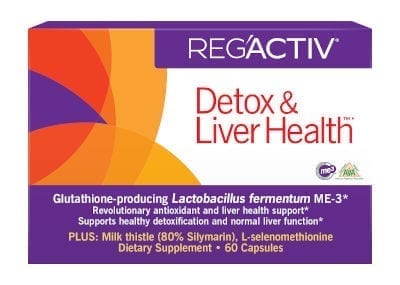By Ross Pelton, RPh, PhD, CCN
Scientific Director, Essential Formulas
The purpose of this article is to explain why vitamin C is one of the most important therapies to strengthen your immune system. During the global pandemic health crisis, it is important to take proactive measures to enhance the body’s immune system. Adequate vitamin C is critical for a strong, robust immune system.
NOTE: The statements and information in this article have not been evaluated by the Food and Drug Administration. The statements and/or products discussed in this presentation are not intended to diagnose, treat, cure or prevent any disease. Consult your physician before starting any new supplement or health program.
Nearly all animals can make their own vitamin C. Only humans and other higher primates, guinea pigs and a few obscure species of bats, birds and fish cannot synthesize their own vitamin C. In the 4,000 species of animals that can biosynthesize vitamin C, the procedure is a process that requires four different enzymes to convert glucose (sugar) into vitamin C. The structure of glucose and vitamin C are quite similar, and this is why ingesting sugar is so detrimental to the human immune system. I’ll explain more about this shortly.
Genetic Mutation: It is estimated that about 60 million years ago, a genetic mutation occurred in some mammals and primates, including our human ancestors that inhibits our ability to synthesize our own vitamin C.i The genetic mutation that occurred approximately 60 million years ago was in the gene that codes for production of the 4th enzyme in the glucose-to-vitamin C pathway.ii Hence, we have that 4th enzyme, but the mutation in the gene makes the enzyme in humans non-functional.
White blood cells (WBCs), which are produced in bone marrow, are the foundation of your immune system. WBCs circulate throughout your cardiovascular system, which consists of your heart, arteries, veins and an estimated 70,000 miles of micro-capillaries and also throughout your lymphatic system. White blood cells are constantly on patrol, on the lookout for viruses, bacteria and/or other foreign invaders.
WBCs Need Vitamin C: In healthy individuals, the concentration of vitamin C inside white blood cells is from 10 to 100 times higher than the concentration of vitamin C in the surrounding blood and lymph.iii During an infection, white blood cells utilize vitamin C to kill viruses and bacteria, but this depletes their stores of vitamin C, which makes them less effective.
Vitamin C supplementation helps maintain elevated levels of vitamin C in WBCs, which enhances your immune system. Also, when you get an infection, the body dramatically increases production of WBCs to fight the infection, which exponentially increases the body’s need for vitamin C. This explains why taking mega-doses of vitamin C have been reported effective in the prevention and treatment of respiratory viral infections.
In one study, researchers tested the effectiveness of mega-doses of vitamin C in preventing and relieving symptoms of virus-induced respiratory infections. The control group consisted of 463 people between ages of 18 to 32, who treated cold and flu symptoms with pain relievers and decongestants. The test group consisted of 252 people between ages of 18-30. When any of these individuals experienced the first symptoms of cold or flu, they were instructed to take 1,000 mg of vitamin C per hour for the first 6 doses followed by 1,000 mg three times daily thereafter.
RESULTS: Overall, reported flu and cold symptoms were 85% less in individuals who took mega-doses of vitamin C, compared to the control group.iv
How Sugar Destroys Your Immune System:
I mentioned previously that white blood cells concentrate enormous amount of vitamin C (50 to 100 times greater concentration). However, because the structure of sugar and vitamin C are so similar, when sugar is ingested, it competes with vitamin C to cross the cellular membranes into white blood cells. One study reported that ingestion of a large dose of sugar inhibit the transport and accumulation of vitamin C into human white blood cells (neutrophils) from 3 to 9-fold. This dramatically weakens your immune system by weakening the ability of these white blood cells to attack and kill viruses and bacteria.v
The image below shows the similarity between the structure of sugar and vitamin C.

This next image shows how sugar competes with vitamin C for entry into white blood cells. This dramatically reduces the concentration of vitamin C inside white blood cells and dramatically weakens your white blood cells ability to fight viruses and bacteria. Sugar destroys your immune system.

Studies have shown that ingesting a 100-gram dose of sugar from glucose, fructose, sucrose, honey or orange juice ALL significantly decrease the capacity of white blood cells to engulf and destroy bacteria. This suppression of the immune system happens quickly. The greatest immune system-suppressing effects occur within 1 to 2 hours of ingesting sugar and the immune system-suppressing effects last for up to 5 hours.vi
TITRATION OF VITAMIN C TO BOWEL TOLERANCE:
The most common side effect from an overdose of vitamin C is diarrhea. Loose stools are actually an indicator that you have reached your bowel tolerance. Taking vitamin C in divided doses throughout the day, at high enough doses so that you begin to get loose stools is the way to “find” or achieve your bowel tolerance.
Utilizing vitamin C for the treatment of diseases by titrating to an individual’s bowel tolerance was first discovered and popularized by Robert Cathcart, MD. Cathcart developed a worldwide reputation for in the 1980s and 1990s for successfully treating HIV and AIDS patients with mega-doses of vitamin C.vii Dr. Cathcart discovered that the sicker a patient was, the more vitamin C he/she would tolerate by mouth before experiencing diarrhea.
Cathcart discovered that under normal conditions, most adults can tolerate from 10-15 grams of vitamin C in four divided doses over 24-hours without having diarrhea. However, nearly all patients can ingest and tolerate much greater amounts of vitamin C without reaching diarrhea when they are ill. Thus, Cathcart began categorizing illnesses according to how much vitamin C was required to reach bowel tolerance. For example, a mild cold requires 30-60 grams of vitamin C/24-hours; a severe cold requires 6-100 grams of vitamin C/24-hours; influenza = 100-150 grams of vitamin C/24-hours; mononucleosis and viral pneumonia required 150-200 grams of vitamin C/24-hours.viii
The body’s white blood cells use enormous amounts of vitamin C to fight an infection and kill the invading pathogen(s). Hence, higher doses of vitamin C are required in order to fight successfully fight an infection.
High-dose vitamin C may cause stomach discomfort for some people due to its acidic nature (ascorbic acid). Mineral ascorbates are good alternatives such as calcium ascorbate, a combination of calcium and magnesium ascorbate and/or sodium ascorbate. Powdered vitamin C products can be purchased in many health food or vitamin stores as well as online.
When taking high-dose vitamin C, many people find it easier to use powdered vitamin C rather than vitamin C tablets or capsules. Powdered vitamin C is easily dissolved in water or juice and one teaspoonful of powdered vitamin C is approximately 4 grams.
Vitamin C is Water Soluble: After a large dose of vitamin C is ingested, the majority of the excess is excreted in the urine within 4-6 hours. Thus, to maintain elevated plasma levels, vitamin C should be taken in divided doses 3 to 4 times daily.
Vitamin C, Interferons & Viruses: Interferons are a class of protein-like compounds with strong antiviral properties that are naturally produced in humans. In fact, interferons are referred to as the first line of defense against viral infections in humans and other animals.ix
Studies in cell cultures and in animals show that vitamin C induces or increases the production of interferons. Vitamin C has been shown to inactivate a wide spectrum of viruses and also suppress viral replication and expression in infected cells.x Various studies have reported that ascorbic acid provides antiviral activity against the following viral diseases: poliomyelitis, viral hepatitis, measles, mumps, chicken pox, shingles, infectious mononucleosis, viral encephalitis and influenza.xi
Within 1 to 2 days following exposure to a virus, the body increases production of type I interferons, which is the body’s initial immune system response to a viral infection. Studies have shown that vitamin C is required for the increased production of type I interferons, which is the body’s primary antiviral immune response during the early phase of a viral infection.xii
A major risk associated with blood transfusions is contracting hepatitis B viral infection. The following human clinical trial shows how vitamin C protects against contracting viral infections. Researchers tracked 1,537 patients who had received blood transfusions following surgery. The incidence of hepatitis B was 0.2% among patients who received two grams or more of vitamin C daily after whole blood transfusion compared to 7%, or 35 times greater incidence among patients who received little or no vitamin C following their transfusion.xiii
IV Vitamin C: Frederick Klenner, MD pioneered the use of “megadoses” of vitamin C to patients to treat a wide range of viral infections from the late 1940s up through the 1970s. The IV doses Klenner administered ranged from 25,000 to 30,000 mg for adults.xiv
Many physicians who practice functional or complimentary medicine regularly administer intravenous vitamin C to patients. However, However, the AMA, the FDA and mainstream medicine in the US has not approved the use of IV vitamin C.
IV Vitamin C to Treat Patients with COVID-19. Dr. Enqian Mao, chief of emergency medicine at Ruijin Hospital in Shanghai, China has been using high-dose IV vitamin C for over 10 years to treat patients with acute medical conditions. When COVID-19 broke out, Dr. Mao recommended using high-dose vitamin C to treat seriously ill COVID-19 patients.
Dr. Mao stated that his group treated about 50 cases of moderate to severe cases of Covid-19 infection with high dose IV vitamin C. The IVC dosing was in the range of 10,000 mg – 20,000 mg a day for 7-10 days, with 10,000 mg for moderate cases and 20,000 for more severe cases, determined by pulmonary status (mostly the oxygenation index) and coagulation status. All patients who received IV vitamin C improved and there were no deaths. Compared to the average of a 30-day hospital stay for all Covid-19 patients, those patients who received high dose IV vitamin C had a hospital stay about 3-5 days shorter than the overall patients.xv
Conclusion: To date, no studies have been conducted with vitamin C for coronavirus. The Dr. Mao report summarized above is not a peer-reviewed scientific study, it is just an observational report. However, the purpose of this article is to review a substantial body of scientific research which shows that vitamin C has strong immune system-enhancing properties. Vitamin C is required for the activity and function of white blood cells; vitamin C gets rapidly depleted during conditions of stress or infection; the body requires higher doses of vitamin C to mount an effective immune response against viral and bacterial infections; vitamin C is required to the production of type I interferons, which is the body’s first line of defense against viral infections.
During this global coronavirus pandemic, it is important for people to understand the important roles that vitamin C plays in the human immune system in general and specifically, in the human immune system’s response to viral infections.
I am a strong advocate of a healthy diet. However, it is nearly impossible to get therapeutic doses of vitamin C by just consuming healthy, organically grown foods. Be proactive in supporting and strengthening your immune system by taking 500 mg to 1,000 mg or more of vitamin C several times daily. Your immune system will thank you.
May you all have good health,
Warm regards,
Ross Pelton, The Natural Pharmacist





